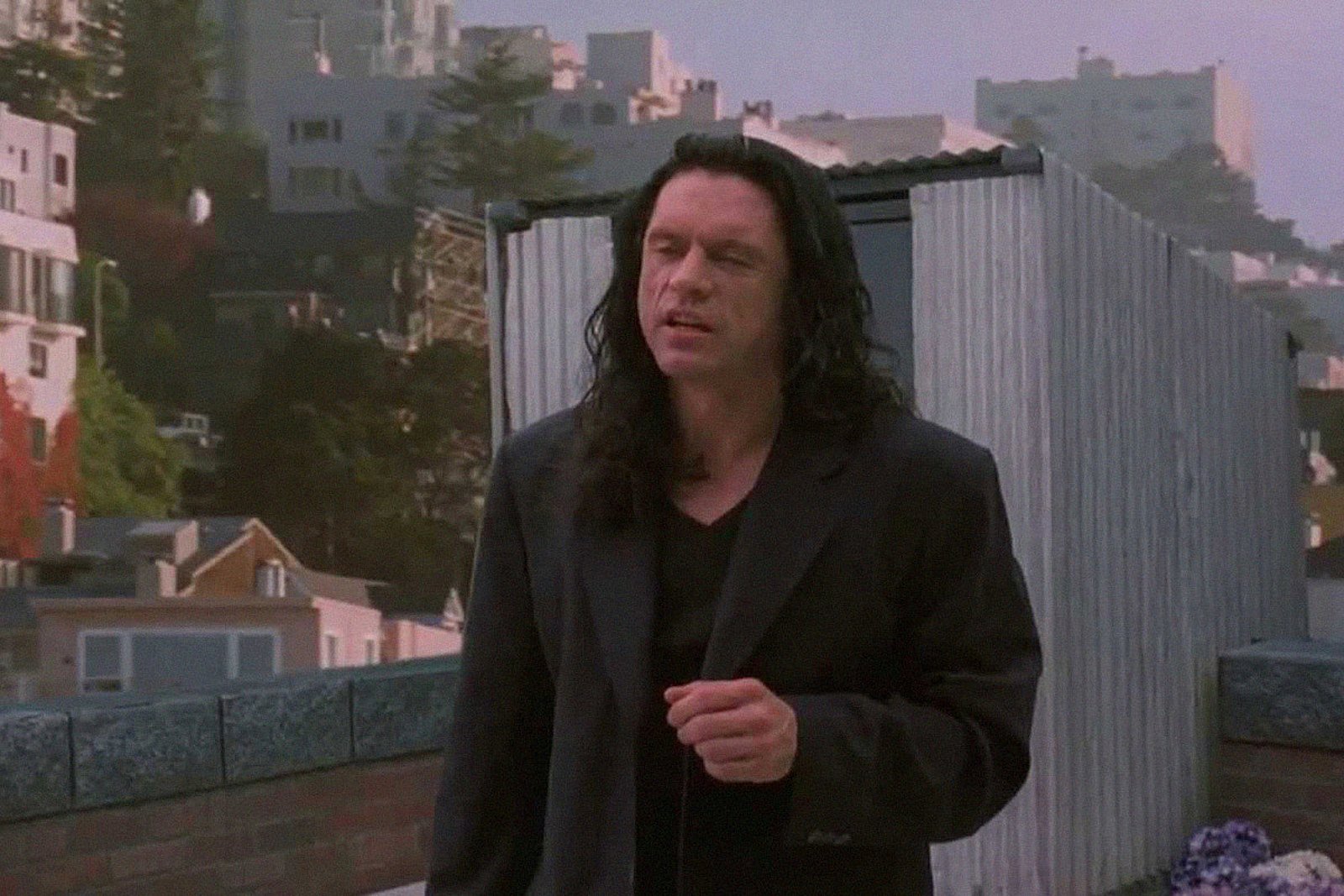Tommy Wiseau’s cult phenomenon The Room is coming to town, and so is its unfathomable auteur, Wiseau himself, for what’s being called a “master director’s class”. The joke here is that The Room is this generation’s favourite all-time worst movie; a mindbending collision of Showcase-grade ’90s soft-core (it was made in 2003), insane dialogue, proliferating subplots of no fixed destination, and performances so wrong and inept they achieve a sort of other-dimensional weirdness. And that’s to say nothing of its infamous obsession with close-quarter football, the breast-cancer puzzle, or the scene with the tuxedos.
But it’s a very likable film all the same, and hardly the worst of anything. References on The Simpsons and Wiseau’s cheerful appearance on The Tim and Eric Awesome Show, Great Job! point to the affection The Room has inspired since it became a midnight-screening staple, and there’s no denying its value as entertainment, inadvertent or otherwise. As for Wiseau, in contrast to the painful sight of Troll 2’s wounded director, Claudio Fragasso, trying to defend his film in the doc Best Worst Movie, the L.A.–based filmmaker has embraced his infamy. “I’m happy where I am right now, and I was happy from the beginning,” Wiseau tells the Straight, from his office in Los Angeles. “When I started my acting classes, to me, if you get response, negative or positive, as long as [you’re] sincere, you do a good job. That’s my point.”
It should probably be noted that among the unique pleasures of The Room is Wiseau himself, who stars in spite of his cracked English (asked what we should expect from the “master director’s class,” he replies, “Well, they will have something they never will forget before”). Then there’s his thick and utterly unidentifiable accent (Austrian? Russian? Martian? Festrunk brother? Nobody seems to know). Equally, one of the unique pleasures of our conversation was going back later and trying to transcribe it. It took me about 20 minutes to figure out what “da-bubblah-mont” means (development), but Wiseau was nothing but polite and good-natured, if a little elliptical with his answers. He’s certainly at pains to stress that he “can’t control the audience”—a point he made many times, and a very good one, all things considered.
“I think still mainstream media, and Hollywood, and America, they don’t grasp The Room, to be honest with you,” Wiseau says. “Some people, what they’re blogging about it, talking about it, some of the groupies, they don’t understand, to me, as a director or actor, the more colours you put into it, the better it is. I’ve been in many universities, including Harvard University, and some of the people ask me questions. And again, they don’t understand that I did my job well, based on reaction of public. People should understand that my take on it is that you leave to public to decide it… Any take is a good take.” In other words, Wiseau appreciates that The Room gets any kind of response at all, correct?
“Well, you see,” he states, “you have to understand you cannot control the audience, that’s number one. I don’t know if you have opportunity to see Cleopatra, of Elizabeth Taylor, the first movie who they spend a lot money, et cetera et cetera. And you see Lisa, character in The Room—everybody laugh right now, and say, ‘Wait a minute, what’s he talking about?’—what I’m talking about: human behavior, how woman can be [deceitful] but at the same time be nice, how far the girl can go. Some people say, ‘Oh, you bashed this.’ No, I’m not bashing, I’m just comparing, because you see, again, my goal in The Room was to present a character, Lisa, she has full control of everything that’s within the room, and suddenly she lose the control, just like Cleopatra. I rest my case. Now, to respond to your sort of question-slash-statement, absolutely, I’m pro freedom. So, I’m far away from control the audience…”
Cleopatra, eh? There were moments during our conversation, I must admit, when I considered the possibility that Wiseau is really just fucking with us. Except that he’s not fucking with us. He is what he is. Which is fine, but it does mean that a question as seemingly uncomplicated as, “Why did you call your film The Room?” gets an answer like this: “Good question,” Wiseau begins. “It’s not called A Room. It’s The Room. I decided to use a T-H-E, a the, because, as you know, typical English 101, it’s a special place. It’s your own place. It’s a place in your basement, maybe in forest, wherever you are. You know the expression, ‘King of the house’? Of your own house? You’re the king. You’re comfortable, and that’s why it’s called The Room, we don’t call it A Room. And that’s good question, you know?”
Honestly? No, I don’t know. When I ask why so much of The Room takes place on the infamous green screened roof of the building, Wiseau’s answer is actually brilliant, with an air-tight circular logic all its own—although we have to wind through a long digression on “typical San Francisco parties,” the size of the apartment building, parks, and football before we finally get there. “If I don’t have a roof,” he says, eventually, “then we don’t have this conversation right now.” Is Wiseau implying that he shot all that stuff on the roof so that I could ask him about it eight years later? Or did he just kick my ass with the world’s greatest Zen koan? Again, I really don’t know. I really don’t know anything anymore. Like, I said, the weirdness is other-dimensional, and I submit.
Georgia Straight, September 2011
